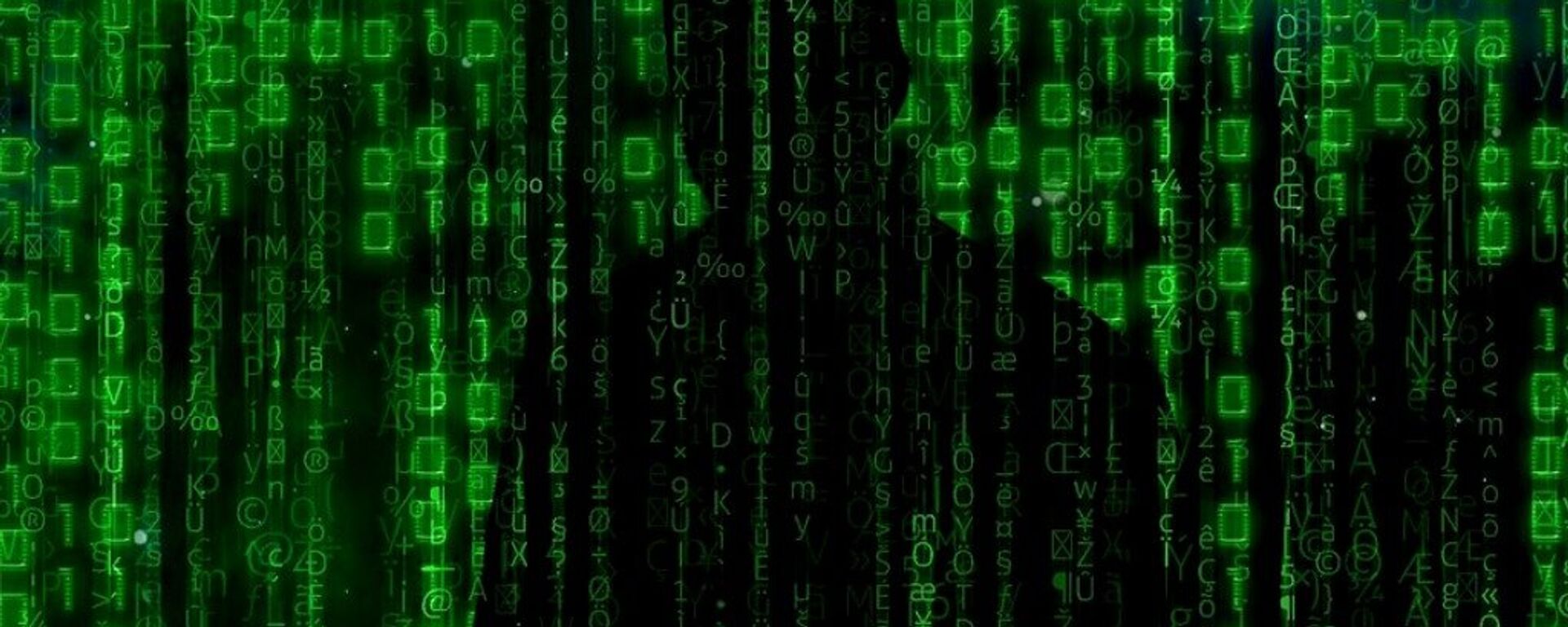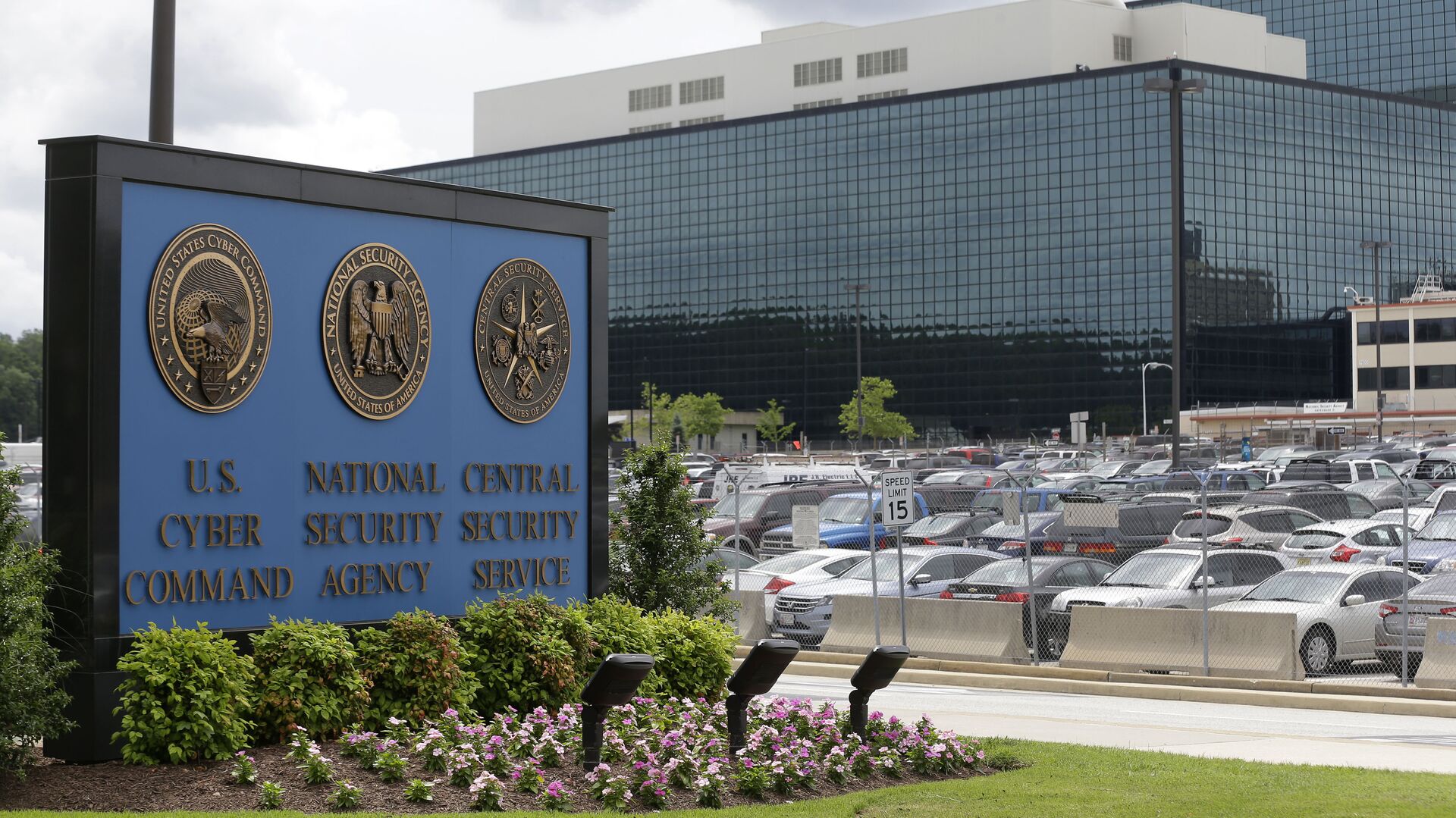https://sputnikglobe.com/20231129/section-702-has-to-go-proposed-changes-to-key-surveillance-law-wont-protect-civil-liberties-1115290970.html
‘Section 702 Has to Go’: Proposed Changes to Key Surveillance Law Won’t Protect Civil Liberties
‘Section 702 Has to Go’: Proposed Changes to Key Surveillance Law Won’t Protect Civil Liberties
Sputnik International
Opposition to Section 702 has grown so much since it was first authorized in 2008 that lawmakers are seeking to more than double the surveillance law’s reauthorization time, posing a potent threat to Americans’ civil liberties.
2023-11-29T20:38+0000
2023-11-29T20:38+0000
2023-11-29T20:36+0000
analysis
us foreign intelligence surveillance act (fisa)
mark warner
chris garaffa
surveillance
spying
us
https://cdn1.img.sputnikglobe.com/img/106165/46/1061654662_0:331:4501:2862_1920x0_80_0_0_ecdf74fd9b5942bf63af7a63c62ca3ca.jpg
A bipartisan group of lawmakers has united to support a bill sponsored by US Sen. Mark Warner (D-VA), the chair of the Senate Select Committee on Intelligence, that would incorporate some concerns by civil liberties groups about the Section 702 surveillance program into the program’s renewal, which is required by the end of the year if it is to continue.Warner’s bill would ban the FBI from querying the FISA database in so-called “backdoor searches” in pursuit of evidence for its own investigations, unless it is to prevent the loss of life, serious bodily injury, or a cyberattack on critical infrastructure.However, for civil liberties groups, it’s not enough. Kia Hamadanchy, senior policy counsel at the American Civil Liberties Union (ACLU), said Warner’s proposal “makes mostly cosmetic changes and doesn’t actually get at the underlying problems” with Section 702.In February, the White House said it “strongly supports” reauthorizing Section 702 of the Foreign Intelligence Surveillance Act (FISA).The law allows the National Security Administration (NSA) to monitor and collect Americans’ communications with foreign nationals and to turn over intercepts to the FBI, without a warrant or probable cause, if the NSA believes it could be “helpful.”Congress passed FISA in 1978 in the wake of the Church Committee and other investigations that had revealed the essentially unchecked behavior of US intelligence services since the 1940s, including especially the CIA. The law was intended to systematize and legalize surveillance processes by forcing them through a secretive Foreign Intelligence Surveillance Court (FISC).Abuse of the FISC and of Section 702 has long been exposed by whistleblowers, but so have US intelligence reports themselves. One report by the Office of the Director of National Intelligence (ODNI) published in April 2022 showed extensive evidence of the FBI searching through data acquired under the act without first seeking FISC authorization, which must accompany a search for explicit information.According to the report, the FBI queried Section 702 data an estimated 3.39 million times between December 1, 2020, and November 30, 2021. It noted the FBI had previously been found to be abusing the FISA process in 2018.Chris Garaffa, technologist and co-host of the CovertAction Bulletin podcast, told Radio Sputnik’s Political Misfits on Wednesday that the Section 702 program is not salvageable from the point of view of civil liberties, because the checks that exist in the system are themselves routinely abused.“All of Section 702 is objectionable,” they said.“I think what’s going to happen here is, we need to stop this. I mean, 702 has to go overall, but I think what they’re going to try to do - this is what’s being reported, and I agree with this - is they’re slipping this into the National Defense Authorization Act (NDAA). This is a giant bill, one of what they call the ‘must-pass bills’, like, ‘we can shut off the lights on everyone in the country, but as long as the NDAA passes, then everything’s going to be ok’. This is one of those bills and that’s what they’re trying to do," Garaffa said.“So I see it as a last-ditch effort. Privacy advocates, civil libertarians have been talking about the renewal of 702 for over a year, knowing that it needed to be renewed this year. And all of a sudden now, other than a couple letters from I think [US Senators] Rand Paul and Ron Wyden, we’re seeing these supposedly heroic attempts to come to a compromise - I think it’s very weak, what they’re trying to do. They’re trying to effectively say: ‘Hey, we’re going to save all or the majority of this 702 program, because it’s going to be on this bill, it has to pass’, and maybe they weaken one or two provisions of it,” they told Sputnik.Garaffa said that “702 has to go overall, it’s going to be on the NDAA, unfortunately now it is going to pass, but that means that we have some time to rebuild this movement for civil liberties and privacy in order to prevent it again.” The technologist noted that “they noticed that there is this movement and now they want to extend the sunset date to 12 years from five.”
https://sputnikglobe.com/20231108/lawmakers-introduce-section-702-bill-renewing-spying-powers-for-us-intel-agencies-1114806129.html
https://sputnikglobe.com/20231117/mass-surveillance-in-hyperdrive-us-company-suspected-of-enabling-government-abuses---report-1115013265.html
https://sputnikglobe.com/20231006/eu-allowing-spying-on-journalists-part-of-normalized-digital-surveillance-1113987729.html
Sputnik International
feedback@sputniknews.com
+74956456601
MIA „Rossiya Segodnya“
2023
News
en_EN
Sputnik International
feedback@sputniknews.com
+74956456601
MIA „Rossiya Segodnya“
Sputnik International
feedback@sputniknews.com
+74956456601
MIA „Rossiya Segodnya“
will congress authorize section 702, does the nsa spy on americans, can the government listen to my calls
will congress authorize section 702, does the nsa spy on americans, can the government listen to my calls
‘Section 702 Has to Go’: Proposed Changes to Key Surveillance Law Won’t Protect Civil Liberties
Opposition to Section 702 has grown so much since it was first authorized in 2008 that lawmakers are seeking to more than double the surveillance law’s reauthorization time, posing a potent threat to Americans’ civil liberties, a technologist told Sputnik.
A bipartisan group of lawmakers has united to support a bill sponsored by US Sen. Mark Warner (D-VA), the chair of the Senate Select Committee on Intelligence, that would incorporate some concerns by civil liberties groups about the Section 702 surveillance program into the program’s renewal, which is required by the end of the year if it is to continue.
Warner’s bill would ban the FBI from querying the FISA database in so-called “backdoor searches” in pursuit of evidence for its own investigations, unless it is to prevent the loss of life, serious bodily injury, or a cyberattack on critical infrastructure.
“I think that the compromise product that we’ve got is pretty darn good, and it pushes the administration further than I think they want to go, but that’s what they can live with,” Warner told a prominent US newspaper. “So we’re actually in a pretty decent spot there.”
However, for civil liberties groups, it’s not enough. Kia Hamadanchy, senior policy counsel at the American Civil Liberties Union (ACLU), said Warner’s proposal “makes mostly cosmetic changes and doesn’t actually get at the underlying problems” with Section 702.
In February, the White House said it “strongly supports” reauthorizing Section 702 of the Foreign Intelligence Surveillance Act (FISA). The law allows the National Security Administration (NSA) to monitor and collect Americans’ communications with foreign nationals and to turn over intercepts to the FBI, without a warrant or probable cause, if the NSA believes it could be “helpful.”

8 November 2023, 00:12 GMT
Congress passed FISA in 1978 in the wake of the Church Committee and other investigations that had revealed the essentially unchecked behavior of US intelligence services since the 1940s, including especially the CIA. The law was intended to systematize and legalize surveillance processes by forcing them through a secretive Foreign Intelligence Surveillance Court (FISC).
Section 702 was created in 2008 as part of a broader expansion of FISA, and allowed the National Security Agency (NSA) to conduct searches of foreigners' communications without a warrant.
It “incidentally” also surveils Americans with whom those foreigners interact, according to US intel agencies.
Abuse of the FISC and of Section 702 has long been exposed by whistleblowers, but so have US intelligence reports themselves. One report by the Office of the Director of National Intelligence (ODNI)
published in April 2022 showed extensive evidence of the FBI searching through data acquired under the act without first seeking FISC authorization, which must accompany a search for explicit information.
According to the report, the FBI queried Section 702 data an estimated 3.39 million times between December 1, 2020, and November 30, 2021. It noted the FBI had previously been found to be abusing the FISA process in 2018.

17 November 2023, 02:52 GMT
Chris Garaffa, technologist and co-host of the CovertAction Bulletin podcast, told
Radio Sputnik’s Political Misfits on Wednesday that the Section 702 program is not salvageable from the point of view of civil liberties, because the checks that exist in the system are themselves routinely abused.
“All of Section 702 is objectionable,” they said.
“Part of what is being proposed is that you have to at least get a warrant if you’re going to include information about American citizens in these searches. But to me, it’s still objectionable that the US is going to spy on people across the world because they say they can, because they have the technological ability and they have the political clout - for now - to be able to do that.”
“I think what’s going to happen here is, we need to stop this. I mean, 702 has to go overall, but I think what they’re going to try to do - this is what’s being reported, and I agree with this - is they’re slipping this into the National Defense Authorization Act (NDAA). This is a giant bill, one of what they call the ‘must-pass bills’, like, ‘we can shut off the lights on everyone in the country, but as long as the NDAA passes, then everything’s going to be ok’. This is one of those bills and that’s what they’re trying to do," Garaffa said.

6 October 2023, 21:45 GMT
“So I see it as a last-ditch effort. Privacy advocates, civil libertarians have been talking about the renewal of 702 for over a year, knowing that it needed to be renewed this year. And all of a sudden now, other than a couple letters from I think [US Senators] Rand Paul and Ron Wyden, we’re seeing these supposedly heroic attempts to come to a compromise - I think it’s very weak, what they’re trying to do. They’re trying to effectively say: ‘Hey, we’re going to save all or the majority of this 702 program, because it’s going to be on this bill, it has to pass’, and maybe they weaken one or two provisions of it,” they told Sputnik.
“We also know the FISA courts are absolutely rubber stamps. These judges are rubber stamps for the intelligence agencies, so being forced to get a FISA warrant is actually not a challenge, it’s just one more piece of paperwork and a walk into a courtroom that is not open to the public, that is not a place where the public can go and observe what their government is doing in their name.”
Garaffa said that “702 has to go overall, it’s going to be on the NDAA, unfortunately now it is going to pass, but that means that we have some time to rebuild this movement for civil liberties and privacy in order to prevent it again.” The technologist noted that “they noticed that there is this movement and now they want to extend the sunset date to 12 years from five.”





